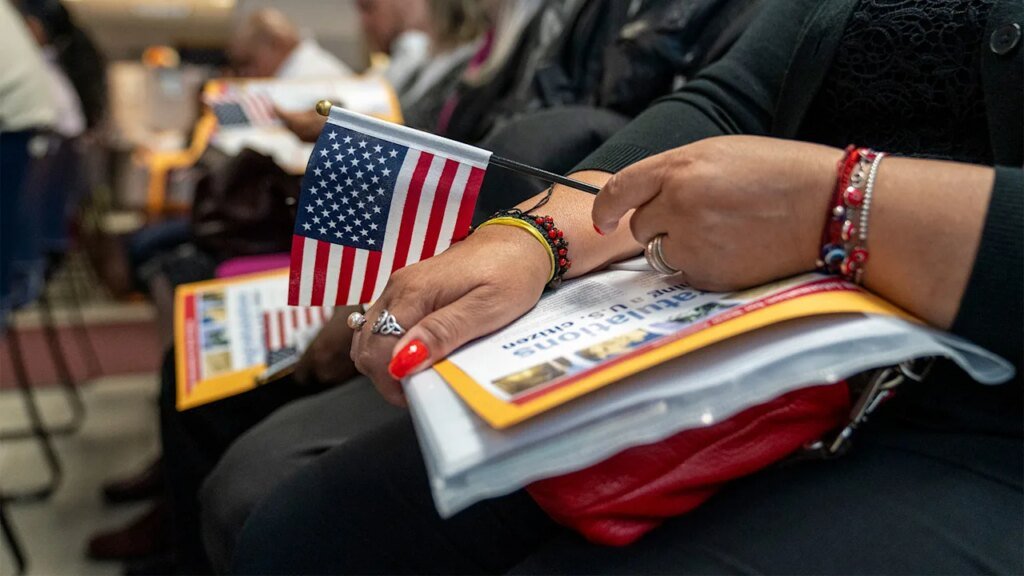The Trump administration is deliberately pulling up the welcome mat for people seeking legal status in the United States.
This Monday, the federal government rolled out a new civics test for green card holders applying for U.S. citizenship—an exam that critics have said is needlessly more complex than its predecessor.
Applicants who filed for naturalization prior to October 20 will continue to take the 2008 version of exam. However, those submitting applications after that date will be subject to the 2025 civics test, with special provisions extended to applicants 65 or older who have been permanent residents for at least 20 years.
Matthew Tragesser, spokesperson for the United States Citizenship and Immigration Services (USCIS), endorsed the changes in a statement.
The updated test, he said, “ensures only those aliens who meet all eligibility requirements, including the ability to read, write, and speak English and understand U.S. government and civics, are able to naturalize,” and that “the American people can be assured that those joining us as fellow citizens are fully assimilated and will contribute to America’s greatness.”
How the new test differs from the old version
The old test required six correct answers out of 10. While the new version requires 12 correct out of 20.
Meanwhile, the question pool has expanded from 100 to 128, with many questions now being more demanding. According to the immigration law firm Vega & Associates, roughly 75% of the 2025 test draws on prior material, and additional questions cover U.S. history and government in greater depth.
Geography and holiday questions—such as “What ocean is on the West Coast?”—are replaced by more challenging ones, as NPR reported.
Examples include: “Why did the United States enter the Persian Gulf War?” (Answer: “To force the Iraqi military from Kuwait.”) And “Why did the United States enter the Vietnam War?” (Answer: “To stop the spread of communism.”)
The exam is also administered differently. Officers stop asking questions once an applicant either passes or fails. Nine incorrect answers and the assessment ends.
Vega & Associates advises test takers to focus on understanding concepts rather than memorizing exact answers, as questions may be phrased differently during the exam.
Civics knowledge isn’t the only new requirement
Applicants must now demonstrate “good moral character.”
Previously, a clean record sufficed, but applicants may now need to provide evidence of “positive contributions to American society,” with officers potentially interviewing coworkers, neighbors, or family members.
According to The Washington Post, these changes are part of a broader initiative by the Trump administration to make citizenship more difficult and to increase scrutiny of immigrants and visa holders.
Immigration advocates worry that the updates could pose additional barriers, particularly for applicants with limited literacy or access to preparation courses.
“It’s hard to imagine these changes don’t reduce the number of people who can complete the naturalization process,” Julie Mitchell, legal director at the Central American Resource Center in Los Angeles, told NPR.
And this may only be the beginning. Officials are reportedly considering additional measures, such as essays demonstrating attachment to the U.S. Constitution.
“They are opening the door for more biased decision-making based on arbitrary factors like race,” Eric Welsh, partner at Reeves Immigration Law Group, told Axios. “It’s extremely dangerous and a slippery slope.”

